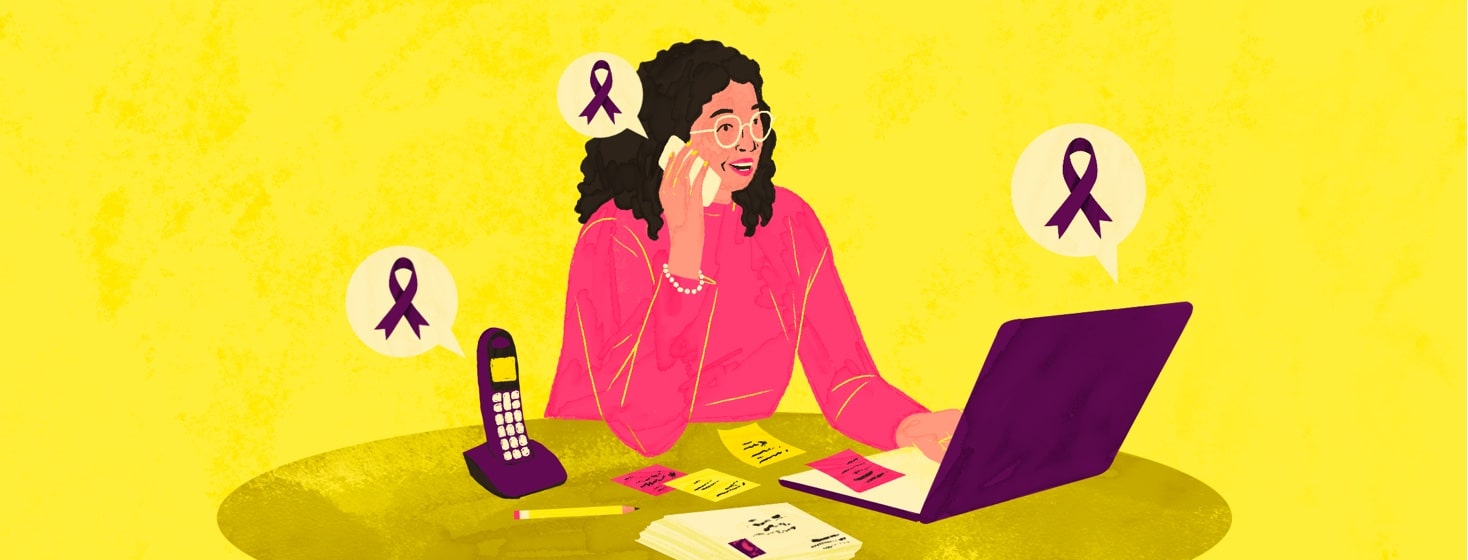Ask the Advocates: CF Advocacy
There are so many ways to get involved with cystic fibrosis advocacy and research – from talking to loved ones about life with CF to donating to CF foundations, and more. Advocacy and research have been extremely vital and central to the CF community. Often the easiest way to get involved on a personal level is participating in advocacy efforts.
Those efforts may feel like a drop in the bucket, but they are still new voices being added to the conversation. The more voices that are added to the conversation, the stronger the push to drive research and the hope of a cure.
We asked our advocates to share the importance of being a CF advocate, both with advocacy efforts and research.
The importance of being a CF advocate
Response from Ella
Advocating for the future of advanced therapies for treating CF is crucial to our community to inspire researchers, investors, foundations, policymakers, and pharmaceutical companies to understand the continued need for improving our quality of life. Advocacy requires us to be passionate about bringing awareness to our health challenges and pushes us to yearn for more information and understanding about our condition to be able to identify barriers and obstacles in obtaining the needed outcome.
These obstacles are what fuel our passion and what moves healthcare to advance research and outcomes. I personally have utilized my understanding of science, research, and my own health to push for phage therapy as a viable alternative to antibiotics. Having successfully received this treatment was a testament to the importance of our advocacy and understanding of CF research and advancement.
Response from Katelyn
Research and advocacy are a vital part to the CF community. The research that is privately funded has given CF patients the opportunity to plan, hope, and dream of things that were previously not afforded to some patients. Advocacy has helped bring more awareness to CF and the CFF, which has directly impacted the research that the CFF has conducted on behalf of the patients. There are three types of advocacy, and all help spread knowledge and understanding of cystic fibrosis:
- Self-Advocacy
- Individual Advocacy
- Systems Advocacy
Response from Kenny
This question is simultaneously easy to answer, and hard to put into words. Having been a part of the advocacy and fundraising elements of this community since before I can remember, I have witnessed first-hand what spreading awareness can do and how much the money raised can change lives. Lives have been drastically improved, technology has advanced, and life expectancies have increased consistently throughout my life. I attribute a large portion of these advances to all the advocacy and fundraising efforts that happen within the CF community, which all help to make it possible.
The research side of things, basically applying that fundraising to practical use, is what I’ve gotten more involved with in my adult life. Research is crucial to advancing the therapies and improving outcomes and daily lives of CF patients, and I know how important it is to have reliable, consistent data when studying those new forms of therapy. I’ve repeatedly been told by my care teams how refreshingly consistent I am with my regimen, so it seemed like a perfect fit to get involved in the studies and trials that are available to me. It can be exciting to see what is coming for the future of combatting CF, but it also is extremely fulfilling to be able to contribute to my peers and future patients by helping get those new therapies ready for the larger population.
To sum it all up, CF research and advocacy are significant contributors to improving the lives of CF patients in multiple ways, and increasing those contributors will help give us patients hope for a brighter and longer future.
Response from Cheriz
All my life I was hospitalized at least 2 to 3 times a year. I struggled to maintain my weight and keep my lung function stable. Over the past few years I saw my FEv1 drop to my record lowest number. Thanks to research, new modulators have come to market and I am lucky to be on one of them. I’ve been taking Trikafta since January 2020. Since starting Trikafta I have gained 30 pounds and my lung function has improved over 15%. I’m the healthiest I’ve ever been in my life, and that’s ironic considering it’s in the middle of a pandemic. I have not been hospitalized since March 2020.
So while I’m fortunate enough to have Trikafta, it only works for a certain population in the CF community. There are many mutations and different mutations need different types of modulators. There are CF patients unable to receive any of the current modulators on market. We cannot stop until every patient has these opportunities and we have found a cure for all.
Response from Meagan
My daughter is four years old, and in her lifetime, the medical advances as far as drugs available for her particular CF mutation (Double deltaF508) are incredible. Margo started Orkambi when she was two and will be starting Trikafta when she is six, neither of which were available for children that young when we received Margo’s diagnosis in 2017. Margo’s treatments and therefore health are directly impacted and made possible by the research, so we consider it a critical component for the CF community. Advocacy goes hand in hand with this. My husband and I have advocated for Margo and other CF warriors since day 1. This comes in many forms: regular communication with her school about her CF needs, updating her clinic care team with any big or small health issues that arise between appointments, and more.
What are ways you like to get involved in cystic fibrosis advocacy and research? What are ways you would like to see others get more involved? Share with us below!

Join the conversation